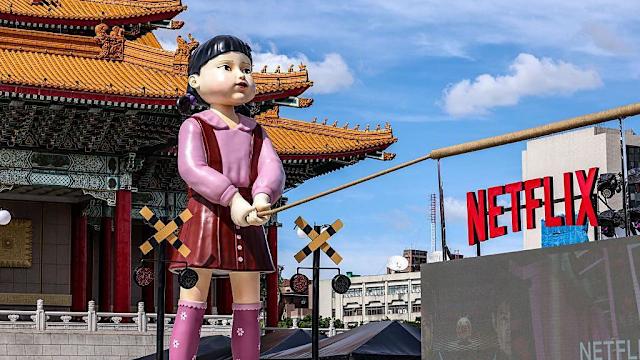Introduction
The final season of Squid Game Season 3 landed on Netflix to global attention, but for South Koreans, it felt uncomfortably real. While fans across the world tuned in for violent games and plot twists, many in Korea saw something deeper: a brutal reflection of the struggles they live daily—unemployment, debt, inequality, and a society that pits person against person. Season 3 doesn’t just conclude a fictional saga; it exposes a very real societal wound.
Rooted in Real Struggles
Squid Game was never just fiction. Creator Hwang Dong-hyuk drew inspiration from his own experiences of poverty and a nation gripped by high-stakes capitalism. Protagonist Gi-hun’s background mirrors the 2009 SsangYong Motor strike, one of Korea’s most violent labor disputes. Like Gi-hun, thousands of real workers faced layoffs, protests, and despair. As one South Korean fan wrote online: “The drama may be fictional, but it feels more realistic than reality itself.”
Season 3: A Bleak Goodbye
The finale sees Gi-hun sacrifice himself to save a baby—an act that divided audiences. Some saw it as noble; others, unrealistic. One user on Nate Pann, a popular Korean forum, said: “It felt like a fake, performative kindness. Who sacrifices themselves for strangers while abandoning their own family?” But others argued it perfectly fit the show’s emotional complexity—portraying both cruelty and hope in the face of unrelenting hardship.
Global Celebration vs Domestic Introspection
As fans celebrated the show’s finale with a large parade in Seoul—complete with pink guards and a giant killer doll—many Koreans reflected on what the series truly represents. While the government touts Squid Game as a symbol of Korea’s soft power success (alongside BTS and Parasite), critics say it distracts from the dark realities it portrays.
Cate Blanchett’s Cameo and Possible Spin-Offs
The final scene teased an international continuation, with Cate Blanchett appearing as a mysterious recruiter in Los Angeles. While no spin-off is confirmed, this scene sparked speculation of a Western version of the deadly games, potentially extending the commentary on global inequality. According to BBC News, Netflix has remained tight-lipped, but buzz around the cameo is rising.
Creator Speaks Out
Director Hwang acknowledged the backlash to Season 3. “In Season 1, there were no expectations. Now, fans expect everything—more games, deeper characters, bigger messages.” He emphasized that the open-ended finale invites personal reflection. “I want viewers to question themselves. That’s what matters more than closure.”
Korean Youth Identify Deeply with the Message
For many young Koreans, Squid Game hit close to home. Competitive schooling, job market pressures, family instability—these themes aren’t exaggerations. As seen in local forums and K-drama reviews, youth feel trapped in a system where survival, not success, is the goal.
Conclusion: A Haunting Cultural Reflection
Squid Game Season 3 doesn’t offer neat resolutions. Instead, it forces a reckoning—with a system designed to break the vulnerable and reward the ruthless. Whether Gi-hun’s final sacrifice is viewed as weakness or hope, one truth remains: Squid Game became a cultural mirror for a country—and a world—facing widening gaps between wealth and dignity.
If you’re interested in how South Korea’s cultural exports shape global conversations, don’t miss our deep dive on K-Drama’s Global Rise.


